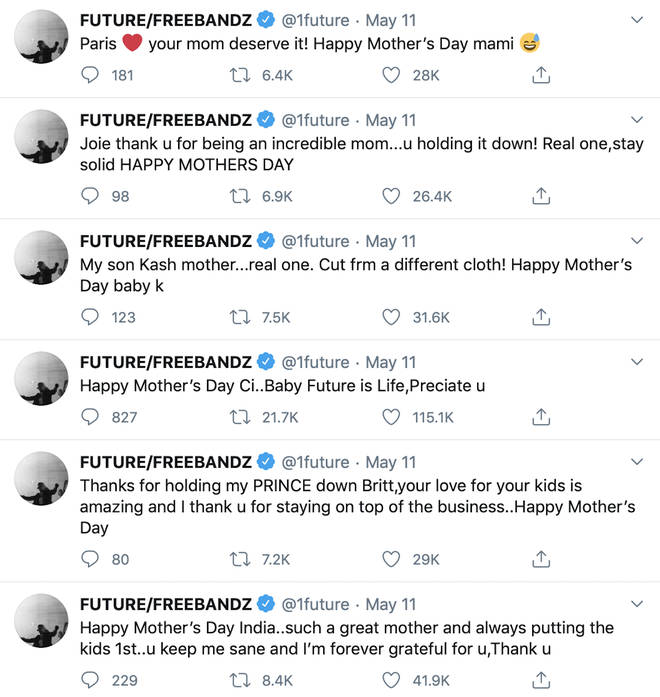Have you ever wondered about the future of family sizes? The question of "future how many kids" is becoming a hot topic as global dynamics shift. From economic pressures to environmental concerns, the decision to have kids is more complex than ever before. So, let's dive in and explore what the future holds for family planning!
As we navigate through the 21st century, the concept of family is evolving rapidly. The traditional idea of a big family with tons of kids is no longer the norm for many. With advancements in technology, changing societal values, and growing awareness of global issues, people are rethinking their choices about having kids. It's not just about "how many" anymore—it's about the "why," the "when," and the "how."
Whether you're planning to start a family or just curious about the trends, this article will give you the lowdown on what the future holds for family sizes. We’ll cover everything from demographic shifts to personal considerations and even touch on the environmental impact of having kids. So, grab a cup of coffee, and let's get started!
Read also:Unveiling The Legacy Of Benjamin Sanov A Journey Through Time
Demographic Shifts: How Family Sizes Are Changing
Let's talk numbers, because numbers don't lie. According to the United Nations, the global average fertility rate has been on the decline for decades. In the 1960s, women worldwide had an average of 5 kids. Fast forward to today, and that number has dropped to around 2.4 kids per woman. Crazy, right?
This trend isn't uniform across the globe, though. In some countries, like Niger, the average family size is still pretty big, with women having around 7 kids. On the flip side, in places like South Korea and Italy, the fertility rate is below replacement level, meaning they're not even replacing their population.
What’s Driving These Changes?
There are a ton of factors at play here. For starters, education plays a huge role. When women have access to education and career opportunities, they tend to have fewer kids. It's not just about personal choice—it's about the ability to make informed decisions.
Economic factors also can't be ignored. Raising kids ain't cheap, and with housing, education, and healthcare costs skyrocketing, many couples are opting for smaller families. Plus, let's not forget the environmental concerns. Some people are choosing to have fewer kids—or none at all—to reduce their carbon footprint.
Future How Many Kids: The Role of Technology
Technology is revolutionizing the way we think about family planning. From fertility apps to in-vitro fertilization (IVF), science is giving people more control over when and how they have kids. But what does this mean for the future?
The Rise of Fertility Apps
Fertility apps are becoming all the rage. These apps help women track their cycles, predict ovulation, and even monitor their overall reproductive health. It's like having a personal fertility coach in your pocket. And it's not just for women trying to conceive—these apps are also helpful for those looking to avoid pregnancy.
Read also:Travis Scott Net Worth The Untouchable Hiphop Mogul Making Waves
Some of the most popular fertility apps include Clue, Flo, and Glow. These apps use algorithms to analyze data and provide personalized insights. It's like having a crystal ball for your reproductive health. Cool, right?
Environmental Concerns: Should We Have Fewer Kids?
Let's talk about the elephant in the room—the planet. Climate change is real, and it's affecting every aspect of our lives. Some people argue that having fewer kids is one of the most effective ways to reduce our carbon footprint. But is this a realistic solution?
According to a study published in Environmental Research Letters, having one fewer child can reduce a person's carbon emissions by about 58 tons per year. That's a massive impact! But it's not just about the numbers—it's about the lifestyle choices that come with raising kids.
Is It Fair to Ask People to Have Fewer Kids?
This is where things get tricky. While having fewer kids might be good for the planet, it's not a one-size-fits-all solution. For some people, having kids is a deeply personal and cultural decision. Asking them to forgo that choice for the sake of the environment can feel unfair.
Instead of focusing solely on the number of kids, maybe we should be looking at how we raise them. Teaching kids about sustainability and encouraging eco-friendly habits can have a big impact too. It's all about balance, ya know?
Personal Considerations: What Should You Think About?
When it comes to deciding "future how many kids," there are a ton of personal factors to consider. From your financial situation to your career goals, every aspect of your life plays a role in this decision. Here are a few things to think about:
- Finances: How much can you afford to spend on raising kids? From diapers to college tuition, the costs add up quickly.
- Time: Do you have the time and energy to devote to raising a family? Kids require a lot of attention, especially in the early years.
- Health: Are you physically and mentally prepared for the challenges of parenthood? It's not just about having kids—it's about being there for them.
- Values: What are your personal values and beliefs about family? Do they align with the idea of having a big family or a small one?
Global Perspectives: How Different Cultures Approach Family Planning
Family planning isn't just a personal issue—it's a cultural one too. Different countries and cultures have different attitudes towards having kids. Let's take a look at how some places are approaching this topic.
Japan: A Nation Facing a Population Crisis
Japan is a perfect example of what happens when fertility rates drop too low. With a shrinking population and an aging workforce, the country is facing some serious challenges. To combat this, the Japanese government has implemented policies to encourage people to have more kids, like offering financial incentives and improving childcare services.
But is it working? Not really. Despite these efforts, the fertility rate in Japan remains stubbornly low. It just goes to show that family planning is a complex issue with no easy solutions.
Future How Many Kids: The Impact on Society
As family sizes change, so does society. Smaller families mean fewer workers, which can lead to economic challenges. But it also means fewer resources being consumed, which can be a good thing for the planet. So, what does this mean for the future?
The Aging Population Problem
One of the biggest concerns with declining fertility rates is the aging population. As more people retire and fewer young people enter the workforce, there's a risk of economic instability. This is already happening in countries like Germany and Japan, where the government is struggling to support an aging population.
But it's not all doom and gloom. Some experts argue that smaller families can lead to more innovation and productivity. With fewer mouths to feed, people may have more time and resources to focus on other areas of life.
Conclusion: What Does the Future Hold?
So, where does this leave us? The question of "future how many kids" is one that will continue to evolve as our world changes. Whether you're planning to have a big family or a small one—or even none at all—it's important to make informed decisions based on your personal circumstances.
Remember, there's no right or wrong answer when it comes to family planning. What works for one person may not work for another. The key is to stay informed, consider all the factors, and make the choice that's best for you.
And don't forget to share your thoughts in the comments below! We'd love to hear your perspective on this topic. Also, be sure to check out our other articles for more insights on family planning and beyond. Thanks for reading!
Table of Contents
- Demographic Shifts: How Family Sizes Are Changing
- Future How Many Kids: The Role of Technology
- Environmental Concerns: Should We Have Fewer Kids?
- Personal Considerations: What Should You Think About?
- Global Perspectives: How Different Cultures Approach Family Planning
- Future How Many Kids: The Impact on Society
Subheadings
- What’s Driving These Changes?
- The Rise of Fertility Apps
- Is It Fair to Ask People to Have Fewer Kids?
- Japan: A Nation Facing a Population Crisis
- The Aging Population Problem


